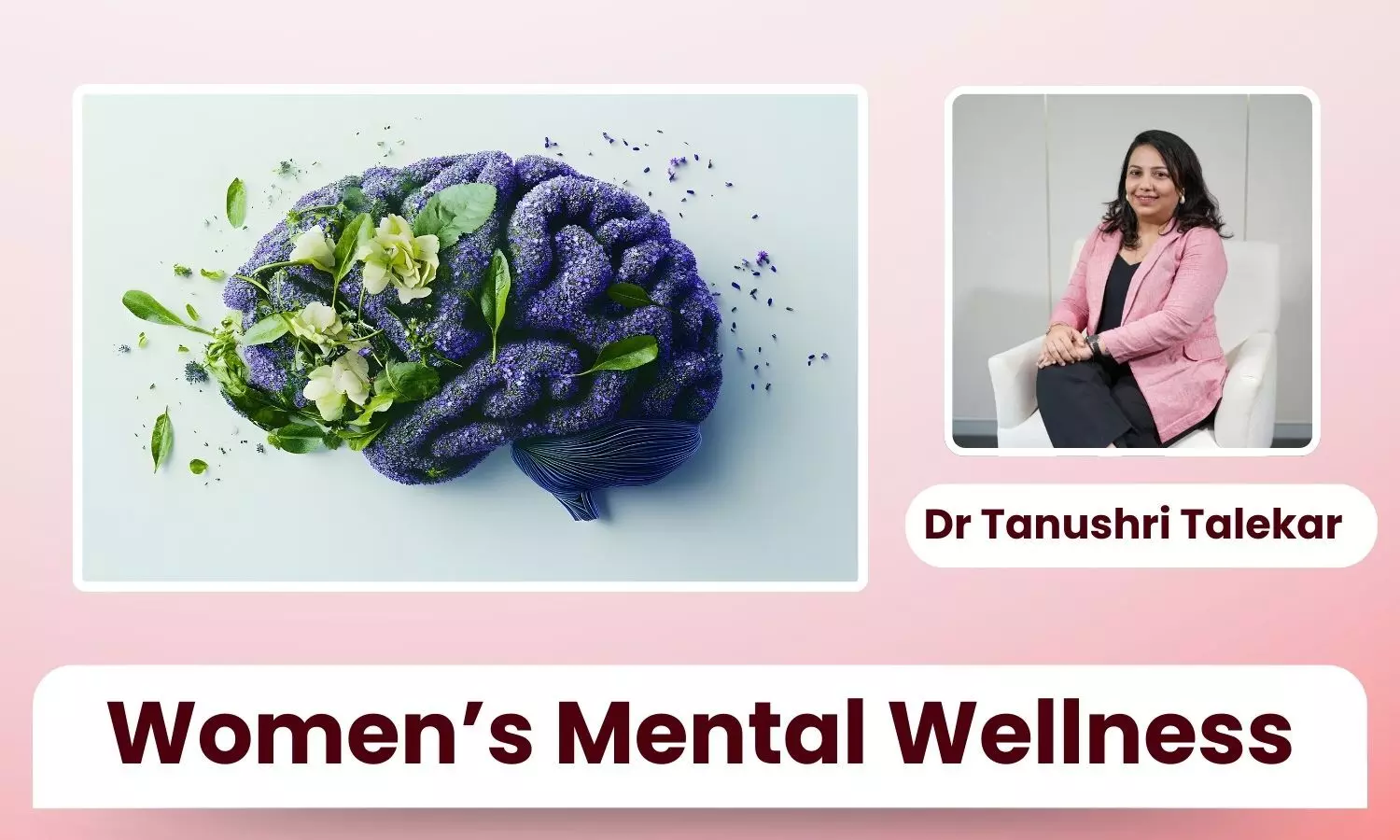Women’s Mental Health and the Need for Inclusive Approaches to Recovery - Dr Tanushri Talekar

In today’s fast-moving world, awareness of mental health is at the forefront of every conversation. Gone are those days when mental health, particularly women’s mental health, used to go to the back burner or became some sort of taboo to talk about.
Today, women are flipping the script as they take charge of their mental health by prioritising their psychological needs and embracing the shift. The interplay of caregiving burdens, workplace inequities, hormonal transitions, cultural expectations, and safety concerns creates a unique emotional footprint, one that calls for more thoughtful, inclusive, and gender-responsive models of care.
Research suggests that women tend to seek help earlier than compared yet still feel unheard or misunderstood. This disconnect is not just a simple clinical oversight but a much deeper-rooted concern that women often experience and the "invisible" mental load they carry.
Most mental health therapists often note that women often seek therapy with double weight: the symptoms that they experience and the silent pressure or expectation from society to be resilient. This unseen weight may never appear on an assessment form, but it affects sleep, anxiety, confidence, and long-term resilience.
Recognising this load is often the first step toward more empathetic and gender-aware support. This is where the meaningful healing journey of women starts-when they are encouraged to give priority to their stories and needs without any feelings of guilt or apology.
Another barrier is financial constraints. Many women, particularly those rearing children solo or in low-income positions, may be inhibited from seeking therapy due to financial constraints.
Community clinics, sliding-scale counselling, online platforms, and non-profit programs make support more accessible. Exploring insurance options or government schemes also eases the burden and helps women feel less alone in navigating mental-health systems.
Women's mental health also varies widely across identities and life stages, making a one-size-fits-all model ineffective. Younger women may battle comparison or academic pressure, while on the other hand, working mothers or women from marginalised communities often carry the dual weight of career expectations, limited access, stigma, and domestic responsibilities.
For this reason, they often tend to take a backseat. These differences underpin the fact that women's mental health is at variance and should therefore be looked at from an intersectional perspective. Hence, trauma-informed practices become basic, encouraging collaboration over authority.
Therapists are increasingly using cognitive techniques to help women rewrite internal narratives driven by guilt or fear; somatic practices to release stress stored in the body; compassion-oriented methods to soften self-criticism; and relational work, so that women can establish healthier boundaries and communication styles.
But recovery also occurs beyond the therapist's couch. Good self-care practices can support counselling initiatives and help women take responsibility for their mental well-being. One of the basic self-care techniques involves developing healthy ways to manage stress and practising mindfulness activities such as journaling, yoga, and speaking with a loved one.
By writing or talking about their feelings, women process them healthily. Supportive environments share caregiving responsibilities more equitably, promote frank discussion, and ease them towards therapy without feelings of guilt.
Ultimately, inclusive mental-health care for women commences the moment women are afforded the space to articulate their experiences in full, which can lead to rediscovery of agency, rebuilding trust in self, and integration of both resilience and vulnerability.
Disclaimer: The views expressed in this article are of the author and not of Health Dialogues. The Editorial/Content team of Health Dialogues has not contributed to the writing/editing/packaging of this article.


